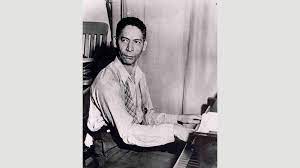
Who Named Jazz?
Jazz is one of the most beloved genres of music, with origins tracing back to the late 19th century. But who was responsible for naming the genre? In this blog post, we’ll explore the origins of jazz and its influence by both Creole and African music. We’ll also take a look at who named the genre and how it all came together to create the music we know and love today. Get ready to explore the roots of jazz and find out who gave it its name.
For Those Who Want to Know More Info: Facebook.com
The Origins Of Jazz
Jazz is a beloved musical genre rooted in African American culture, first introduced in New Orleans, Louisiana in the late 19th century. It developed from a combination of musical styles such as blues, ragtime, and spirituals, and its exact origin is believed to be derived from the slang term “jass”. Jazz remains popular worldwide, with famous musicians like Miles Davis, Louis Armstrong, John Coltrane, and Ella Fitzgerald.
It is recognized as a unique blend of African, Caribbean, and European influences, evolving from blues, ragtime, spirituals, and other folk music popular in New Orleans. Congo Square was an important hub for musicians to come together, shaping jazz with instruments like saxophone and trombone. Iconic jazz musicians like Jelly Roll Morton, Louis Armstrong, and Duke Ellington spread jazz’s popularity worldwide, and its potential for improvisation makes every performance unique. Jazz is truly something special for us all to enjoy.
How A Musical Style Evolved And Spread Around The World
Jazz is a beloved musical genre worldwide, but how did it spread and who named it? Jazz’s unique history dates back to the early twentieth century, with its origins rooted in New Orleans, Louisiana. This once small music style has evolved into an expansive genre with various styles, from swing to New Orleans jazz to bebop and fusion.
At its core, jazz was created by African American musicians such as Jelly Roll Morton, King Oliver, and Louis Armstrong. These talented musicians blended ragtime music with blues elements while also adding in brass sections from parades to create a unique sound. As word of this new form of music spread throughout America’s cities like Chicago, Kansas City, and New York City, jazz began growing in popularity. Louis Armstrong is widely credited for taking jazz improvisation techniques to new heights with his distinct approach on his trumpet solos during live performances that helped establish jazz’s popularity worldwide.
Jazz soon became one of America’s most popular genres and started influencing other musical styles globally, such as salsa or bossa nova in Latin America or reggae in Jamaica. The exact origin of the name “jazz” is unclear, but some believe it may have derived from “jass,” used by musicians during performances, while others claim it could have been coined by sports writers covering baseball games. Regardless of its origins, jazz’s improvisational nature, creative instrumentation, complex rhythms, and diverse range of influences have made it one of the most beloved forms of music worldwide.
The Influence Of Creole And African Music On Jazz
The history of jazz is complex, and its origins have been debated for centuries. However, one thing is certain – the influence of Creole and African booty music has been paramount in shaping the sound of jazz. Early forms of jazz incorporated traditional instruments such as banjos, drums, and horns, as well as ragtime, blues, and gospel.
In the late 19th century, a unique blend of African and European influences emerged in urban New Orleans with Creole Music. This style was characterized by improvisation and featured three main components – sega, moutia, and jass or jazz. The name “jazz” or “jass” originated from a Creole word for both African dance moves and copulation, giving it suggestive connotations in American culture.
Modern jazz emerged as musicians began to interact with traditional folk music from Africa and urban Creole Music, resulting in an innovative blend that included scat singing, call-and-response vocals, and improvisation. Throughout history, jazz has had a distinct political tone, with musicians addressing civil rights movements and racism within society.
Today, artists like Miles Davis continue to revolutionize jazz while keeping its core elements intact, making it an ever-evolving yet timeless musical art form embraced worldwide by millions.
Who Was Responsible For Naming The Genre?
Jazz is a genre of music that has evolved over the years and has become an integral part of the music industry. Its origins can be traced back to African American experience in New Orleans in the late 19th century. Before jazz became a name for the genre, it was formed from a combination of ragtime and blues music. Buddy Bolden is often credited as the pioneer of jazz music, and musicians such as Jelly Roll Morton also made significant contributions to its development.
Read More Article: Who Created Rap?
The term “jazz” was first applied to this type of music by white musicians outside of New Orleans around 1912-13 who were trying to copy what they had heard from local black bands. Congo Square in New Orleans is seen as one of the main locations where early jazz originated before 1820 due to its long-standing tradition for African Americans gathering there every Sunday after church services.
Today, Jazz is recognized for its expressive qualities that make it stand out among other genres. It involves many different musical styles including contemporary pop songs infused with elements from traditional tunes such as swing or bebop along with instruments like saxophones, trumpets, clarinets, or trombones creating a unique sound like no other. Each era has brought something new with iconic figures such as Louis Armstrong paving their way while inspiring generations after them, making us appreciate this amazing genre even more!
All In All
Jazz is an incredibly unique and influential genre of music with roots that stretch back to the late 19th century. Over time, it has evolved, incorporating elements from other genres such as ragtime, blues, and spirituals. Jazz has been shaped by a variety of influences, including African American and Creole culture. Its iconic sound can be attributed to some of the most talented musicians in history, such as Louis Armstrong and Jelly Roll Morton. Although the origin of the name “jazz” is still up for debate, it’s clear that jazz has transcended time to become one of the most beloved musical styles around the world today.




